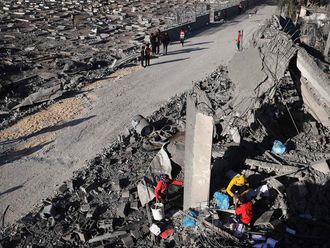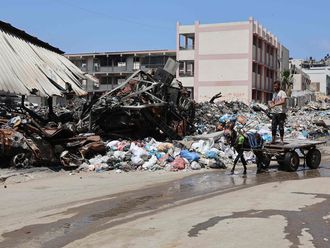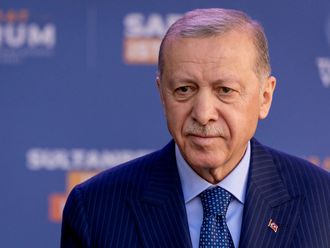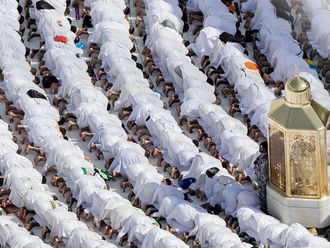London: Britain may consider vetoing an extension of the European Union’s (EU) arms embargo on Syria if the situation does not improve there, Prime Minister David Cameron said on Tuesday.
The EU has a blanket embargo against shipping arms to Syria, though last month Britain persuaded the EU to soften the embargo and allow member states to provide non-lethal aid, such as armoured vehicles, to the rebels fighting the regime of President Bashar Al Assad.
Britain and France have signalled their support for lifting the embargo further to allow weapons into Syria. The current EU embargo expires in May.
Western countries have been rethinking their stance on helping the rebels as Al Assad’s support erodes.
The United States, in a significant policy shift, announced on February 28 that it would for the first time provide non-lethal aid — things like food rations and medical supplies — directly to rebels who are battling to oust Al Assad.
But a senior US military commander, Marine Corps Gen. James Mattis, warned last week that the situation is too complicated in Syria now for the US to provide opposition forces with lethal aid. In the EU, some diplomats also oppose changing the embargo, preferring a political solution.
When asked about his position on the embargo on Tuesday, Cameron told a parliamentary committee: “I hope that we can persuade our European partners [and] if and when a further change becomes necessary, they will agree with us.
“But if we can’t, then it’s not out of the question, we might have to do things in our own way. It’s possible,” he said.
Meanwhile, Russia’s Emergency Situations Ministry said that another group of Russians and others left Syria aboard a government plane on Tuesday. The ministry said the Il-62 plane arrived in Moscow just before midnight on Tuesday with 103 Russians and citizens of other ex-Soviet nations. The plane flew from the port city of Latakia in northwestern Syria, where it had delivered a cargo of humanitarian aid. The flight was the latest in a series of such missions conducted since January.
Russia has been the main ally of Al Assad, shielding him from the UN sanctions over his crackdown on a two-year uprising that has become a full-blown civil war killing more than 70,000 people.












